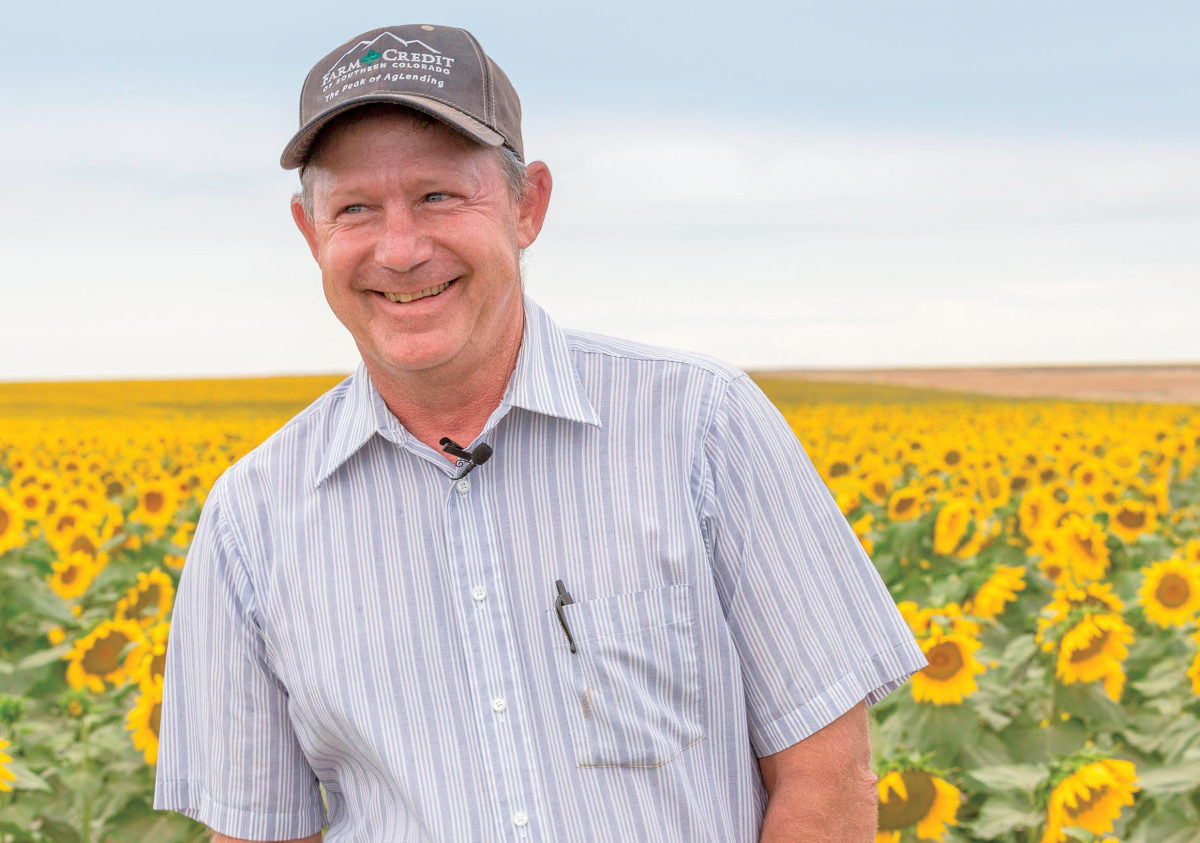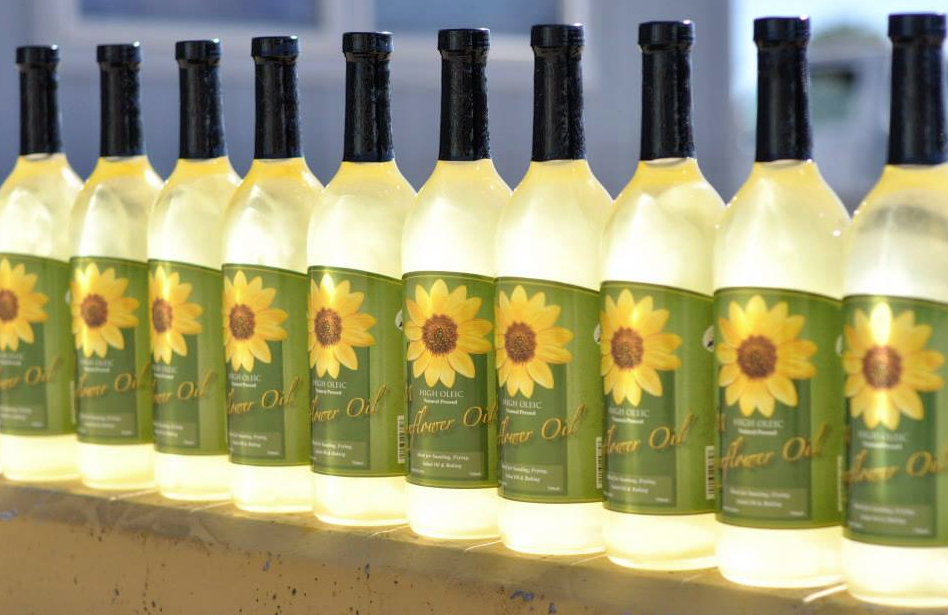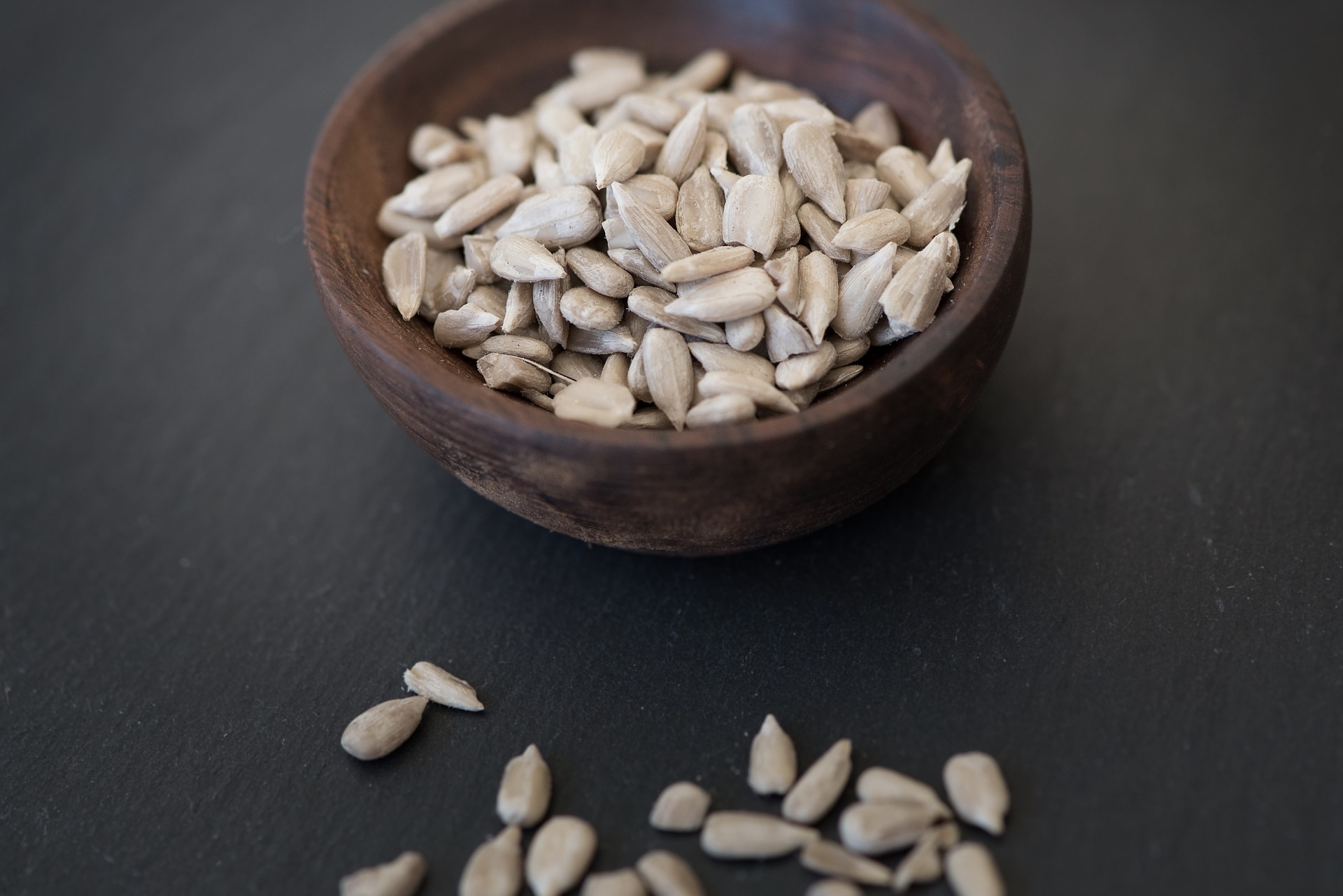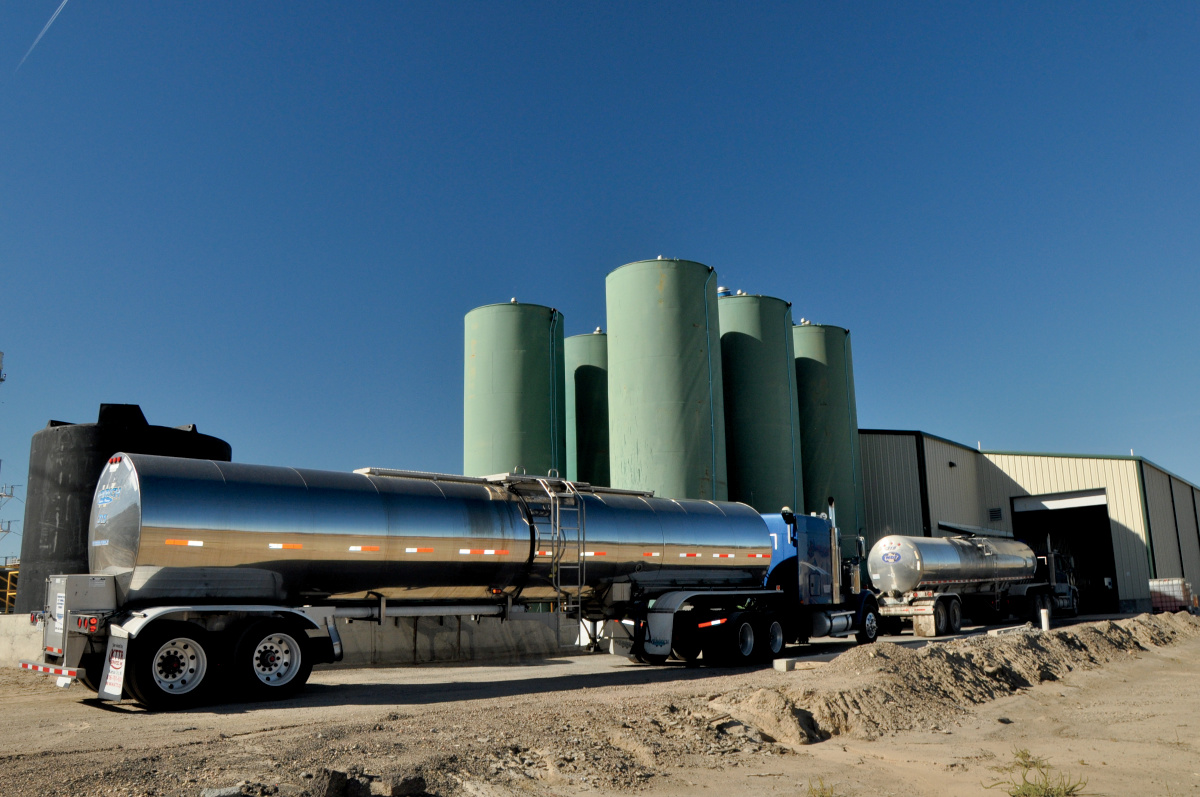Home > Colorado > Colorado Crops & Livestock > What Makes Colorado Sunflower Oil Good to the Last Drop?
What Makes Colorado Sunflower Oil Good to the Last Drop?
In partnership with: Colorado Department of Agriculture

Sunflowers are known all around the world as a symbol of hope and happiness.
While this charming and beautiful flower can put a smile on anyone’s face, it has more to offer the world than a pop of aesthetic beauty. At the center of a sunflower are nutrient-dense seeds that make a delicious snack – and can be used to produce high-quality cooking oil.

Colorado Mills
Colorado Mills, based in southern Colorado, is no stranger to sunflower oil. Its state-of-the-art facility has the capacity to produce 12,000 gallons of oil every single day.
“Our oil is made from locally grown, high-oleic sunflower seeds,” says Kevin Swanson, Marketing Director at Colorado Mills. “We use an expeller-pressed process to extract the oil from the seeds. This process doesn’t use solvents or harsh chemicals like other oils. Instead, it uses friction and pressure.”
Swanson says the oil then goes to the refinery, which removes any impurities and undesirable attributes naturally found in crude oil. The end result – sunshine in a bottle: delicious, heart-healthy, trans-fat-free sunflower oil.

Cooking with Sunflower Oil
Sunflower oil is teasingly diverse.
With a combination of high monounsaturated fats and low saturated and polyunsaturated fats, high-oleic sunflower oil is very stable with an extended shelf life, making it an ideal pantry staple.
Whether you want to fry, bake, sauté or sear, sunflower oil is a top choice. The best part is that this unassuming oil doesn’t alter the taste of your meal.
READ MORE: Baba Ganoush Recipe With Sunflower Oil
“The pleasingly neutral flavor of high-oleic sunflower oil allows you to taste your food, not your oil,” Swanson says.

Empowering Local Growers
In order to produce so many gallons of sunflower oil, Colorado Mills works hand in hand with local farmers to nurture a true farm-to-table system. In fact, about 80 percent of the sunflower seeds processed at Colorado Mills are grown from within 100 miles of their facility.
“Contracting with local growers is essential to our success,” Swanson says. “It lets us know the who, what, where and how of our seeds.”
The partnership between local growers and Colorado Mills helps everyone win.
Selling their sunflower seeds to Colorado Mills provides farmers with access to a good, solid, local market for their products – and gives them the benefit of low transportation costs, which helps increase their profit potential.

No Scraps Left Behind
Because Colorado Mills is dedicated to being an environmentally friendly and zero-waste company, they use as much of the sunflower seed as possible.
The expeller-pressing process that produces their delectable oil also results in something known as sunflower meal. Rather than throwing out this nutritious byproduct, Colorado Mills turns it into livestock feed for local farmers and ranchers.
“Our sunflower meal typically runs 27 percent protein and 10 to 12 percent fat,” Swanson says. “It’s very palatable and great for cattle, goats, horses, sheep and other specialty animals.”

Since the majority of the sunflower farms that the company works with are generational family farms with their own sustainability practices, it only makes sense that Colorado Mills would follow in their footsteps.
While Colorado Mills crushes more than 40 million pounds of sunflower seeds every year, they’re a humble bunch who credit a great deal of their achievements to the local farmer.
“We view the local agriculture community as the backbone of our success,” Swanson says. “Supporting this community strengthens Colorado Mills, and at the same time, strengthens our community.”



